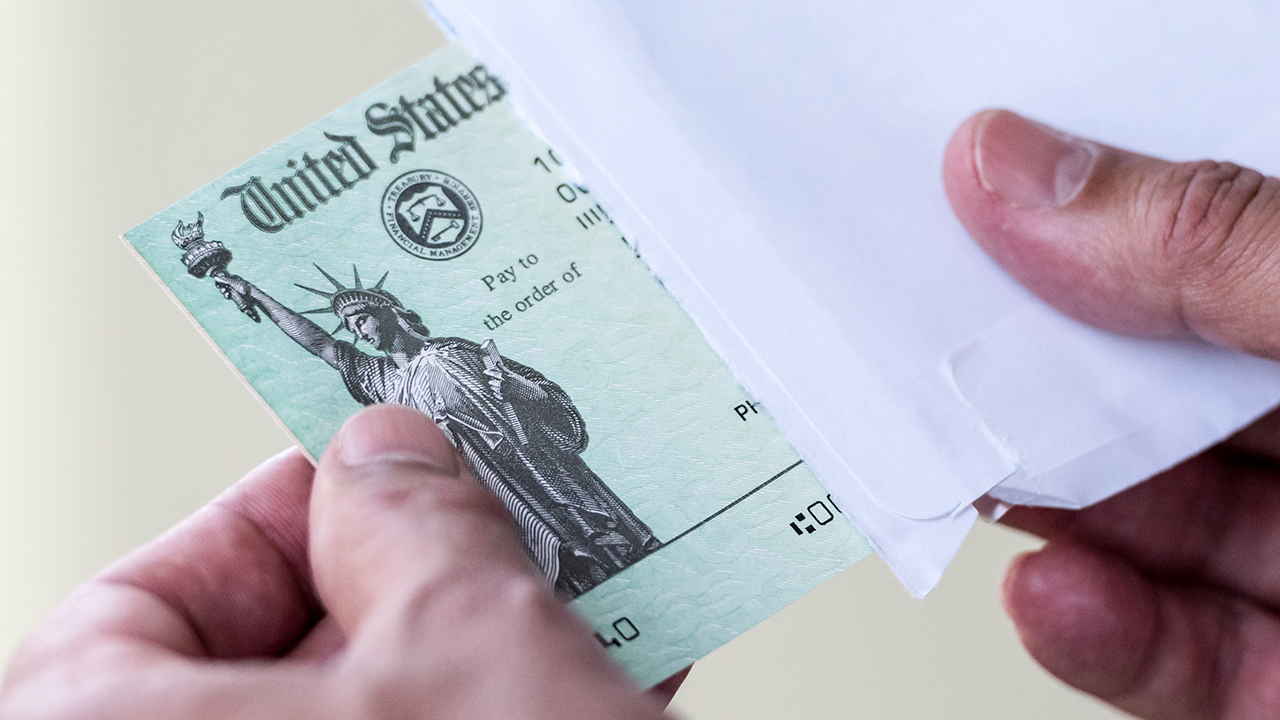Still waiting for your unemployment tax refund? Here's how to check its status
The IRS has not confirmed the delivery of a second round of unemployment tax refunds
FBI begins probe into IRS leak
Former DOJ official Robert Driscoll says the 'IRS has to come down heavy' on leaker
Millions of Americans who collected unemployment benefits last year and paid taxes on that money are in line to receive a federal refund from the IRS this year.
The agency said at the beginning of June that it had processed refunds for 2.8 million people who paid taxes on jobless aid before mid-March, when Democrats passed the $1.9 trillion American Rescue Plan
The law waived taxes on up to $10,200 in 2020 unemployment insurance benefits for individuals who earn less than $150,000 a year. The IRS has estimated that up to 13 million Americans may qualify for the tax break.
HERE'S HOW THE $10,200 UNEMPLOYMENT TAX BREAK IN BIDEN'S COVID RELIEF PLAN WORKS
"Some will receive refunds, which will be issued periodically, and some will have the overpayment applied to taxes due or other debts," the IRS said in a statement. "For some there will be no change."
The IRS said it would deliver a second round of payments in mid-June, but has not officially confirmed those refunds. The IRS did not respond to a FOX Business request for comment.
If you are among the millions of Americans waiting for the money, you can check the payment's status by using the IRS' Check My Refund Status tool, which is designed to people track the status of their tax refund. When you submit your information, you can see when the IRS received your taxes, when your refund has been approved and when your refund has been delivered.
The agency previously said it will do the recalculation in two phases, beginning with taxpayers who are eligible for the $10,200 exclusion. It will then proceed to calculate the new refund for married couples who are eligible for the $20,400 exclusion and other more complex returns.
UNEMPLOYMENT TAX REFUNDS START LANDING IN AMERICANS' BANK ACCOUNTS
"There is no need for taxpayers to file an amended return unless the calculations make the taxpayer newly eligible for additional federal credits and deductions not already included on the original tax return," the agency said.
You're eligible for the IRS tax refund if your household earned less than $150,000 last year, regardless of filing status. Workers can exclude the aid when calculating their modified adjusted gross income — meaning that an individual who earned $140,000 last year but collected $10,200 in jobless aid is still eligible to take advantage of the tax break.
The break applies to this tax-filing season, which began Feb. 12 and ended May 17.
The federal government and most states count unemployment benefits, including the extra money distributed through federal aid programs, as taxable income. But unlike a typical paycheck, taxes aren't automatically deducted from jobless aid, creating a potential for refund shock for millions of out-of-work Americans even though they lost their job.
GET FOX BUSINESS ON THE GO BY CLICKING HERE
About 40 million people collected jobless aid last year, according to the left-leaning think tank The Century Foundation. The average person received $14,000 in benefits.
Still, the bill that Biden signed did not protect the money from garnishment, meaning that some Americans could see a smaller check – or no money at all.
The IRS has cautioned that the refund is is "subject to normal offset rules," the IRS said, meaning that it can be used to cover "past-due federal tax, state income tax, state unemployment compensation debts, child support, spousal support or certain federal nontax debts (i.e., student loans)."





















